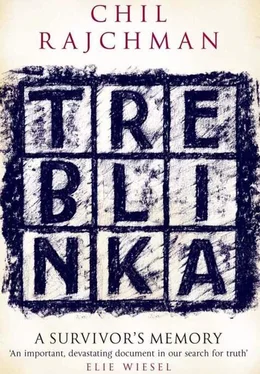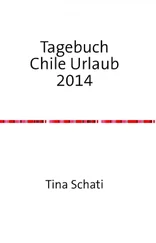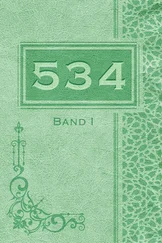Für uns giebt heute nur Treblinka,
Das unser Schiksal ist…
A few minutes before their death, wounded, bleeding people were forced to learn idiotic and sentimental German songs and sing them in unison:
…Ich brach das Blumelein
Und schenkte es dem Schönste
Geliebte Mädelein…
The chief commandant selected a few children from one contingent. He killed their parents, dressed the children up in fine clothes, gave them lots of sweets and played with them. A few days later, when he had had enough of this amusement, he gave orders for them to be killed.
The Germans posted one old man in a prayer shawl and phylacteries next to the outhouse and ordered him not to allow people to stay inside for more than three minutes. An alarm clock was hung from his chest. The Germans would look at his prayer shawl and laugh. Sometimes the Germans would force elderly Jewish men to recite prayers or to arrange funerals for those who had been murdered, observing all the traditional rites. They would even have to go and fetch gravestones — but after a while they were made to open the graves, dig up the bodies and destroy the gravestones.
One of the main entertainments was to rape and torment the beautiful young women whom the S.S. selected from each contingent. In the morning the rapists would personally accompany them to the gas chambers. Thus the S.S. — the bulwark of Hitler’s regime and the pride of Fascist Germany — entertained themselves at Treblinka.
It needs to be emphasized that these creatures were far from being mere robots that mechanically carried out the wishes of their superiors. Every witness attests to their shared love of philosophizing. The S.S. loved to deliver speeches to the doomed; they loved to discuss what was happening at Treblinka and its profound significance for the future. They were all deeply and sincerely convinced that what they were doing was right and necessary. They explained at length how their race was superior to all other races; they delivered tirades about German blood, the German character and the mission of the German race. These beliefs have been expounded in books by Hitler and Rosenberg, in pamphlets and articles by Goebbels.
After they had finished work for the day, and after amusements such as those described above, they would sleep the sleep of the just, not disturbed by dreams or nightmares. They were not tormented by conscience, if only because not one of them possessed a conscience. They did gymnastics, drank milk every morning and generally took good care of their health. They showed no less concern with regard to their living conditions and personal comforts, surrounding their living quarters with tidy gardens, sumptuous flowerbeds and summerhouses. Several times a year they went on leave to Germany, since their bosses considered work in this “factory” detrimental to health and were determined to look after their workers. Back at home they walked about with their heads held high. If they said nothing about their work, this was not because they were ashamed of it but simply because, well disciplined as they were, they did not dare to violate their solemn pledge of silence. And when, in the evening, they went arm in arm with their wives to the cinema and burst into loud laughter, stamping their hobnailed boots on the floor, it would have been hard to tell them apart from the most ordinary man in the street. Nevertheless, they were beasts — vile beasts, S.S. beasts.
The summer of 1943 was exceptionally hot. For weeks on end there was no rain, no clouds and no wind. The work of burning the corpses was in full swing. Day and night for six months the grill pits had been blazing, but only a little more than half of the corpses had been burned.
The moral and physical torment began to tell on the prisoners charged with this task; every day fifteen to twenty prisoners committed suicide. Many sought death by deliberately infringing the regulations.
“To get a bullet was a luxury,” I heard from a baker by the name of Kosów, who had escaped from the camp. In Treblinka, evidently, it was far more terrible to be doomed to live than to be doomed to die.
Cinders and ashes were taken outside the camp grounds.
Peasants from the village of Wólka were ordered to load them on to their carts and scatter them along the road leading from the death camp to the labour camp. Child prisoners with spades then spread the ashes more evenly. Sometimes these children found melted gold coins or dental crowns. The ashes made the road black, like a mourning ribbon, and so the children were known as “the children from the black road”. Car wheels make a peculiar swishing sound on this road, and, when I was taken along it, I kept hearing a sad whisper from beneath the wheels, like a timid complaint.
This black mourning-ribbon of ashes, lying between woods and fields, from the death camp to the labour camp, was like a tragic symbol of the terrible fate uniting the nations that had fallen beneath the axe of Hitler’s Germany.
The peasants began carting out the cinders and ashes in spring 1943, and they continued until summer 1944. Each day twenty carts made from six to eight trips; during each trip they scattered 120 to 130 kilos of ash.
“Treblinka” — the song that eight hundred people were made to sing while they cremated corpses — included words exhorting the prisoners to humility and obedience; their reward would be “a little, little happiness, that would flash by in a single moment”.
Astonishingly, there really was one happy day in the living Hell of Treblinka. The Germans, however, were mistaken: what brought the condemned this gift was not humility and obedience. On the contrary, this happy day dawned thanks to insane audacity — thanks to the insane audacity of people who had nothing to lose.
All were expecting to die, and every day of their life was a day of suffering and torment. All had witnessed terrible crimes, and the Germans would have spared none of them; the gas chambers awaited them all. Most, in fact, were sent to the gas chambers after only a few days of work, and were replaced by people from new contingents. Only a few dozen people lived for weeks and months, rather than for days and hours; these were skilled workers, carpenters and stonemasons, and the bakers, tailors and barbers who ministered to the Germans’ everyday needs. These people created an Organizing Committee for an uprising. It was, of course, only the already-condemned, only people possessed by an all-consuming hatred and a fierce thirst for revenge, who could have conceived such an insane plan. They did not want to escape until they had destroyed Treblinka. And they destroyed it.
Weapons — axes, knives and truncheons — began to appear in the prisoners’ barracks. The risk they incurred, the price they paid to obtain each axe or knife, is hard to imagine. What cunning and skill, what astonishing patience, were required to hide these things in the barracks! Stocks of petrol were laid in — to douse the camp buildings and set them ablaze. How did the conspirators achieve this? How did petrol disappear, as if it had evaporated, from the camp stores? How indeed? Through superhuman effort — through great mental ingenuity, through determination and a terrifying audacity. A large tunnel was dug beneath the ammunition store. Audacity worked miracles; standing beside the conspirators was the God of courage. They took twenty hand grenades, a machine gun, rifles and pistols and hid them in secret places. Every detail in their complex plan was carefully worked out. Each group of five had its specific assignment. Each mathematically precise assignment called for insane daring. One group was to storm the watchtowers, where the Wachmänner sat with their machine guns. A second group was to attack the sentries who patrolled the paths between the various camp squares. A third group was to attack the armoured vehicles. A fourth was to cut the telephone lines. A fifth was to seize control of the barracks. A sixth would cut passages through the barbed wire. A seventh was to lay bridges across the anti-tank ditches. An eighth was to pour petrol on the camp buildings and set them on fire.
Читать дальше







![Нед Виззини - Be More Chill [Расслабься] [litres]](/books/396819/ned-vizzini-be-more-chill-rasslabsya-litres-thumb.webp)




